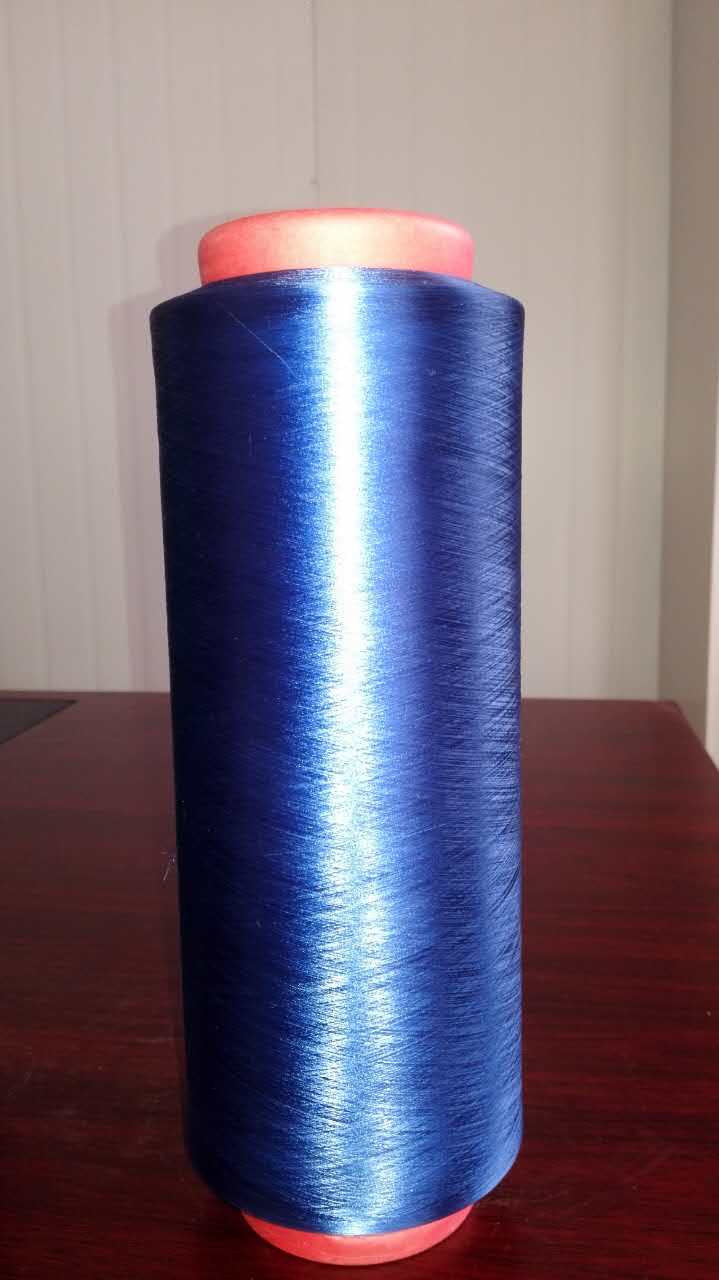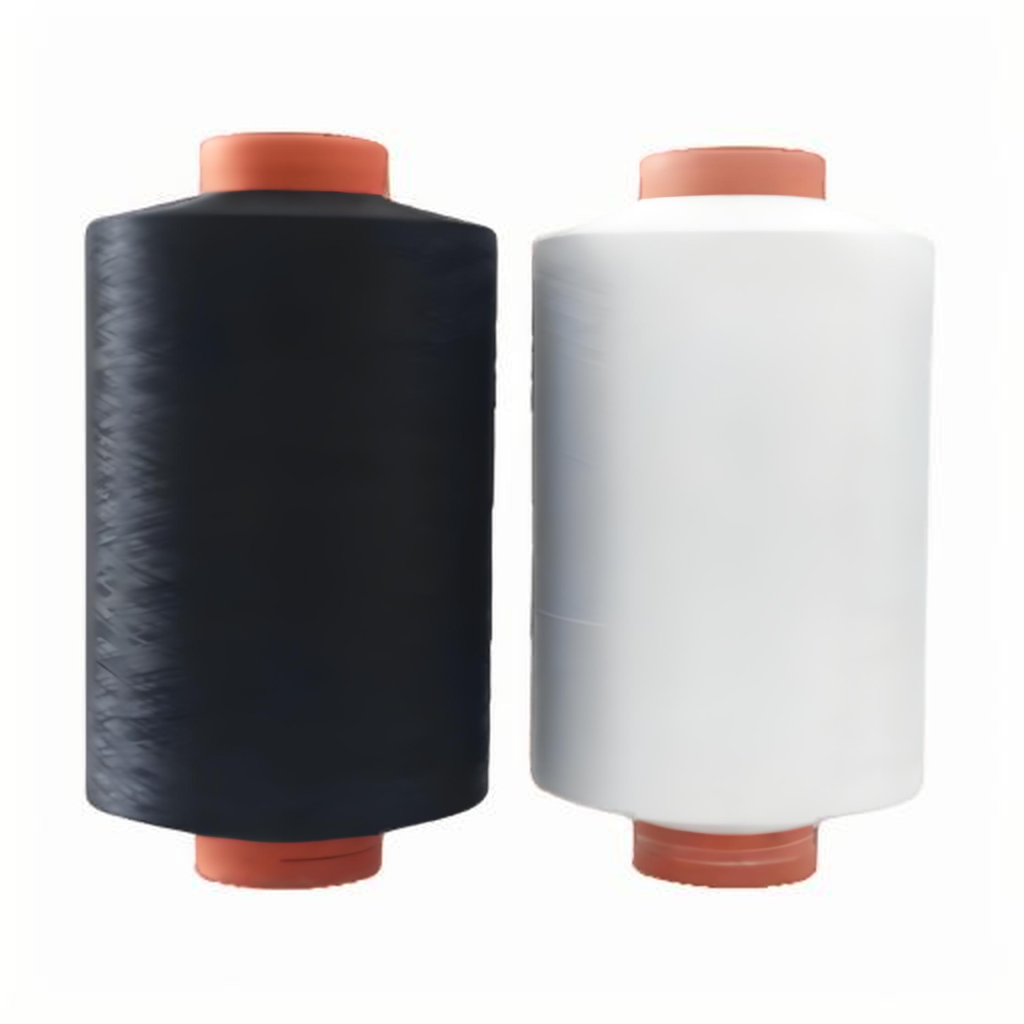
The Main Characteristics And Advantages Of Nylon Yarn - China Yarns Manufacturer And Supplier
Being a major synthetic textile material, nylon yarn has attracted a lot of attention because it has excellent physical properties and finds usage in a wide range of applications. Nylon has been quite important in the textile sector since its debut in the early 20th century. This posture has been maintained exactly since. From the industrial and clothing sectors to other uses, nylon yarn is valuable for a broad spectrum of applications because to its extraordinary strength, flexibility, and wear resistance.

Nylon yarn
Features basic to nylon knitting yarn
Well-known features of nylon yarn include its strength and durability. When nylon yarn comes into touch with big items or outside world stresses, its great tensile strength helps to prevent easy breaking. It is particularly appropriate for circumstances requiring a high degree of strength and resilience to wear, including the manufacturing of industrial textiles, sportswear, and outdoor leisure equipment, because of its remarkable resistance to wear. Resilience allows nylon yarn to be used for extended periods of time without being easily degraded, therefore extending the possibilities for the comfortable use of textiles.
Among the amazing features of nylon yarn are its strength and rebounding power. Excellent stretchability of nylon fibre allows it to quickly revert to its original form under stress or straining. Because of its elasticity, which helps to avoid deformation problems generated by stretching, nylon yarn can keep a good fit and comfort when used in the manufacture of clothing. Furthermore, this characteristic helps nylon yarn to perform very well in elastic sportswear and underwear, therefore improving the wearing experience.
Because nylon yarn is extremely light, it is a great material for a great range of clothing and kinds of machinery. Although nylon yarn is somewhat low density, despite its great strength, this guarantees that it does not contribute any extra weight during use. Clothing made of nylon yarn is distinguished by a comfortable and pleasant wearing feel by virtue of its light weight and great touch. Whether it is being used for daily usage or sports wear, nylon yarn may provide a lightweight and pleasing experience.
Nylon yarn has great chemical resistance. Typical detergues, solvents, as well as acid and alkali liquids—all of which induce degradation—this substance may resist their effects. Nylon yarn is perfect in both industrial and outdoor environments because of its chemical resistance; it may also fit a great range of challenging application conditions. Conversely, this characteristic allows nylon yarn to have a particular application value in specialist environments, like laboratories and medical institutions.
One is using nylon yarn
Regarding comfort, nylon yarn is really good. The soft feel and great degree of flexibility of the materials produced from them enable them to provide a high-quality wearing experience and guarantee tight fit of the body. Low hygroscopicity nylon yarn helps to preserve its dryness even in humid environments, therefore reducing the discomfort caused by moisture or sweating. In the world of sportswear and underwear specifically, nylon yarn’s comfort is rather important as it effectively wicks away sweat and preserves the wearer’s comfort.
Although natural fibres—such as cotton fibres—tend to be more breathable than nylon yarn, the breathability of nylon yarn is sufficient to meet the needs of most uses. Modern textile technology provides the possibility to increase the breathability of nylon yarn by means of developments in fibre structure and weaving process. For instance, employing materials with a pore structure and a design that lets air move through them will help nylon yarn to be more breathable. This guarantees better performance in outdoor tools and clothing.
The impact nylon yarn presents on the surroundings
Note that the production of nylon yarn depends on the use of chemical raw materials and energy, both of which affect the surroundings. on example, the production of nylon fibres calls on non-renewable resources like petroleum and could also generate wastewater and greenhouse gases. The path of future development is therefore the adoption of environmental protection measures and the improvement of processes in the manufacturing process, thereby minimising the quantity of resources utilised and the amount of pollution created.
Another important environmental consideration that has to be considered is nylon yarn recycling. Because nylon fibres are so durable, recycling and reusing garbage from this material will help to greatly reduce the environmental load. To help to recycle rubbish, several companies and research institutes committed to the development of technology for the use of nylon fibre in order to do this This not only helps to lessen the negative consequences waste has on the environment but also advances the development of a circular economy.
Manufacturing nylon yarn for commercial use
Nylon yarn has great use in the textile and apparel sectors. Among other conceivable uses, it is a great material for high-performance apparel like sportswear, outdoor equipment, and trousers because of its great strength and durability. Apart from having great resilience to wear and tear, nylon yarn may be utilised to construct clothes meant for great flexibility and comfort. Many upscale sports and outdoor companies employ nylon yarn mostly to meet the rising demand from consumers for comfort as well as performance.
Many different kinds of industrial textiles are produced using nylon yarn because of its long-lasting character and resistance to chemical pollution. Safety belts, conveyor belts, filter cloths, protective gear, and so on may be produced thanks to the usage of nylon yarn. Its strength and resistance to wear enable it to manage a broad spectrum of harsh circumstances inherent in industrial environments, therefore guaranteeing consistent performance and a long service life.
Furthermore used more often in the manufacturing of domestic textiles are nylon yarn. Homes textile products such curtains, mattresses, and carpets are made from nylon yarn. These items are lightweight and pleasant, which helps to explain their great use experience and longevity. Furthermore, the characteristics of nylon yarn that make cleaning easy enable these domestic textile products to remain clean and appealing for a long length of time.

Dark green nylon yarn
Highly strong, incredibly flexible, light-weight, and durable, nylon yarn is a major synthetic textile fibre used widely in the manufacture of industrial textiles, clothing, and home goods. Although its production method affects the environment, recycling and continuous improvement of environmental protection policies will help to reduce the degree of these impacts. If one makes rational use of the advantages that nylon yarn presents, one may effectively raise the quality and performance of textiles as well as promote the process of sustainable development.
Feature Product
-
 DTY 100D/144F Polyester Yarn
DTY 100D/144F Polyester YarnDTY 100D/144F Polyester Yarn: The Ultimate Guid...
-
 DTY 100D/96F Polyester Yarn
DTY 100D/96F Polyester YarnDTY 100D/96F Polyester Yarn: The Soft, Stable S...
-
 DTY 75D/144F SIM Polyester Yarn
DTY 75D/144F SIM Polyester YarnDTY 75D/144F SIM Polyester Yarn: A Top Choice f...

